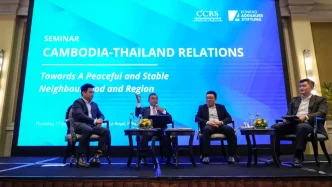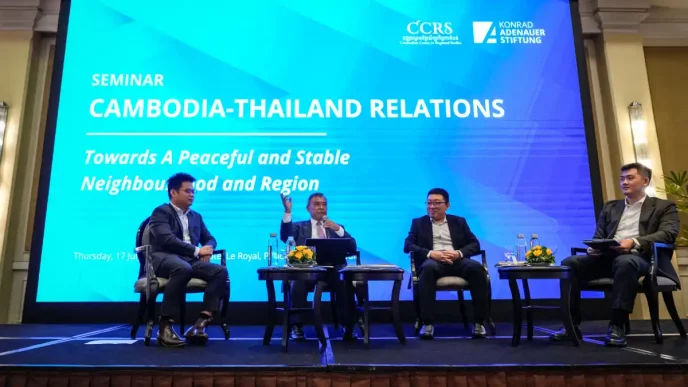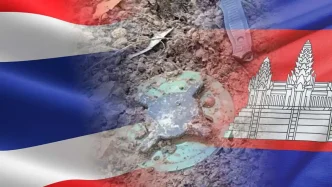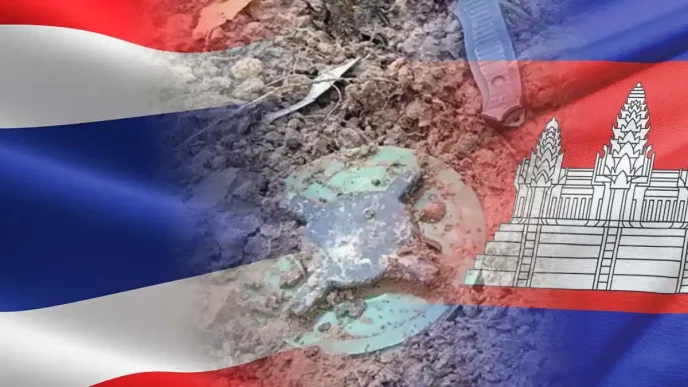Thailand is accelerating efforts to cement its status as a global tourism hub by hosting international events, including MotoGP races and concerts by world-class artists, according to Tourism and Sports Minister Sorawong Thienthong. However, as the contract with Dorna Sports, the licence holder for MotoGP, nears its expiry in 2026, the government faces a delicate balancing act between economic benefits and strategic negotiations.
Speaking to reporters on Tuesday, Sorawong outlined ambitious plans to attract high-profile events to the kingdom, with the Tourism Authority of Thailand (TAT) preparing a detailed proposal for Cabinet approval next month. “We have a task force dedicated to bringing international events to Thailand,” he said. “Talks are already underway with agencies representing world-class artists, and there’s a strong chance they will perform here.”
The announcement comes amid reports that Singapore has secured concerts by pop icon Lady Gaga in May, marking her only Asian stop. The 38-year-old superstar, with 14 Grammy Awards and an Oscar to her name, underscores the fierce regional competition for such events, which can draw thousands of international visitors and generate significant revenue.
MotoGP: A Proven Economic Engine
At the heart of Thailand’s strategy is the MotoGP Grand Prix, held annually at the Chang International Circuit in Buri Ram province since 2018. Sorawong acknowledged the event’s substantial benefits to the country, despite its regional focus in the northeastern province of Isaan. “The MotoGP races benefit the country, but renewing the contract with Dorna Sports without negotiations could be disadvantageous for us,” he cautioned.
The minister’s comments reflect a nuanced approach to the upcoming contract renewal, with the current agreement set to expire next year. While the races have boosted local economies and international visibility—particularly in Buri Ram, a less-visited area compared to tourist hotspots like Bangkok or Phuket—the government is keen to ensure the terms remain favourable. Sorawong also highlighted the disparity in economic returns compared to events like Formula 1, which Thailand is slated to host from 2028. “It would be ideal if Thailand could host both events, and we certainly are ready to do so,” he added.
Last week, concerns over the MotoGP contract made headlines when Newin Chidchob, president of Chang International Circuit, expressed regret over the impending expiry. He also criticised the government’s focus on Formula 1, arguing that local demand for MotoGP far exceeds interest in the latter. For now, Sorawong confirmed that if the MotoGP continues in Thailand, it will remain at Chang Circuit, the only venue in the country certified for such races.
Economic Impacts and Regional Dynamics
Thailand’s push for international events aligns with its broader goal of revitalising tourism, a key pillar of the national economy that contributes roughly 12-15% to GDP. The kingdom welcomed over 39 million foreign visitors in 2019 before the pandemic, generating billions in revenue. While numbers have yet to fully recover, events like MotoGP offer a dual benefit: attracting tourists and showcasing Thailand’s capacity to host world-class spectacles.
The MotoGP alone draws tens of thousands of attendees annually, with ripple effects for local businesses in Buri Ram—from hotels and restaurants to transport services. A 2023 report by the TAT estimated that the event generated over 3 billion baht (approximately £70 million) in direct and indirect economic activity each year. Beyond economics, the race elevates Thailand’s global profile, positioning it as a sporting destination in South East Asia, a region increasingly competing for such accolades.
Yet, the concentration of MotoGP in Buri Ram raises questions about equitable distribution of tourism gains. While the province has seen infrastructure improvements, including better roads and hospitality facilities, critics argue that other regions could benefit from similar exposure. The government’s challenge lies in balancing regional development with the practicalities of hosting at a certified venue like Chang Circuit.
Global Artists and the Singapore Rivalry
Thailand’s aspirations extend beyond sports to the lucrative realm of international concerts. The success of Singapore in securing Lady Gaga’s performance has intensified regional rivalry, with South East Asian nations vying to attract global talent. Such events are not merely cultural; they are economic powerhouses. A single concert by a major artist can attract thousands of international fans, boosting hotel occupancy, retail spending, and airline bookings.
Sorawong’s optimism about hosting similar events suggests Thailand is prepared to invest significantly. The TAT’s upcoming Cabinet proposal will likely detail funding mechanisms, potential venues, and partnerships with international promoters. Bangkok’s Rajamangala National Stadium and IMPACT Arena, as well as newer facilities in Phuket, are often cited as potential locations for mega-concerts, offering capacity for tens of thousands of attendees.
However, challenges remain. Securing artists of Lady Gaga’s calibre requires substantial upfront investment and coordination, from security to logistics. Thailand must also navigate competition not just from Singapore, but from other regional players like Indonesia and Malaysia, which have hosted major acts in recent years. If successful, though, the payoff could be immense, reinforcing Thailand’s brand as a vibrant, must-visit destination.
Negotiating the Future of MotoGP
Returning to MotoGP, the government’s cautious stance on contract renewal with Dorna Sports reflects broader concerns about long-term sustainability. While Sorawong acknowledged the event’s benefits, his emphasis on negotiation hints at potential sticking points—possibly over hosting fees, revenue sharing, or commitments to infrastructure upgrades. Dorna, a Spanish company managing MotoGP worldwide, is known for driving hard bargains, especially with emerging markets eager to host races.
If Thailand opts not to renew, the loss could dent its sporting prestige and tourism appeal. Neighbouring countries, including Malaysia, which already hosts a MotoGP round at Sepang, could vie for an additional slot. Conversely, a well-negotiated deal could secure Thailand’s position while maximising economic returns. Speculation abounds about whether the government might push for rotating venues or additional support for Buri Ram’s local economy as part of the talks, though no concrete proposals have been confirmed.
A Dual Strategy for Growth
Thailand’s twin focus on sports and entertainment underscores a strategic vision for tourism-led growth. By pairing high-octane events like MotoGP with cultural spectacles like international concerts, the government aims to diversify its appeal, attracting a broader spectrum of visitors—from adrenaline junkies to music enthusiasts. This approach also mitigates risks associated with over-reliance on any single sector, a lesson learned from the pandemic’s devastating impact on travel.
Yet, success hinges on execution. Hosting MotoGP and global artists demands not just financial investment but also world-class infrastructure, safety standards, and marketing. The government’s collaboration with TAT and private stakeholders will be crucial, as will its ability to address local concerns—whether from Buri Ram residents seeking greater benefits or taxpayers wary of public spending on such events.
Looking Ahead
As Thailand gears up for Cabinet discussions on international events, the coming months will reveal the shape of its tourism strategy. A renewed MotoGP contract, if secured on favourable terms, could anchor the kingdom’s sporting calendar for years to come. Similarly, landing a major artist could signal a new era for cultural tourism, challenging regional rivals and delighting fans.
For now, Sorawong’s message is clear: Thailand is open for business, ready to host the world’s biggest events. Whether it can translate ambition into action remains to be seen, but the stakes—for tourism, for the economy, and for national pride—couldn’t be higher.














